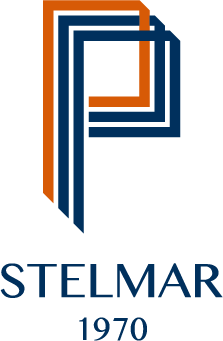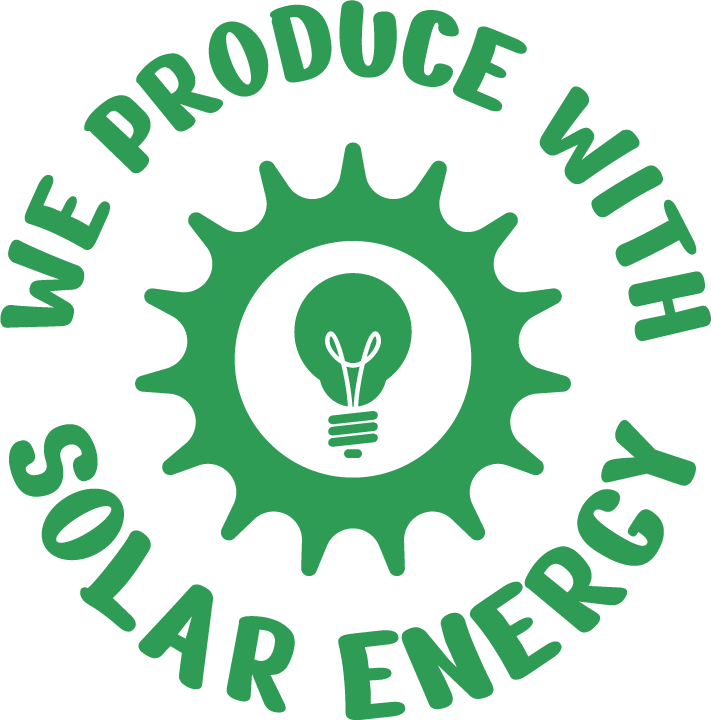
For organizational needs aimed at improvement and eco-sustainability, Stelmar has obtained numerous certifications in recent years, including:
Quality certifications
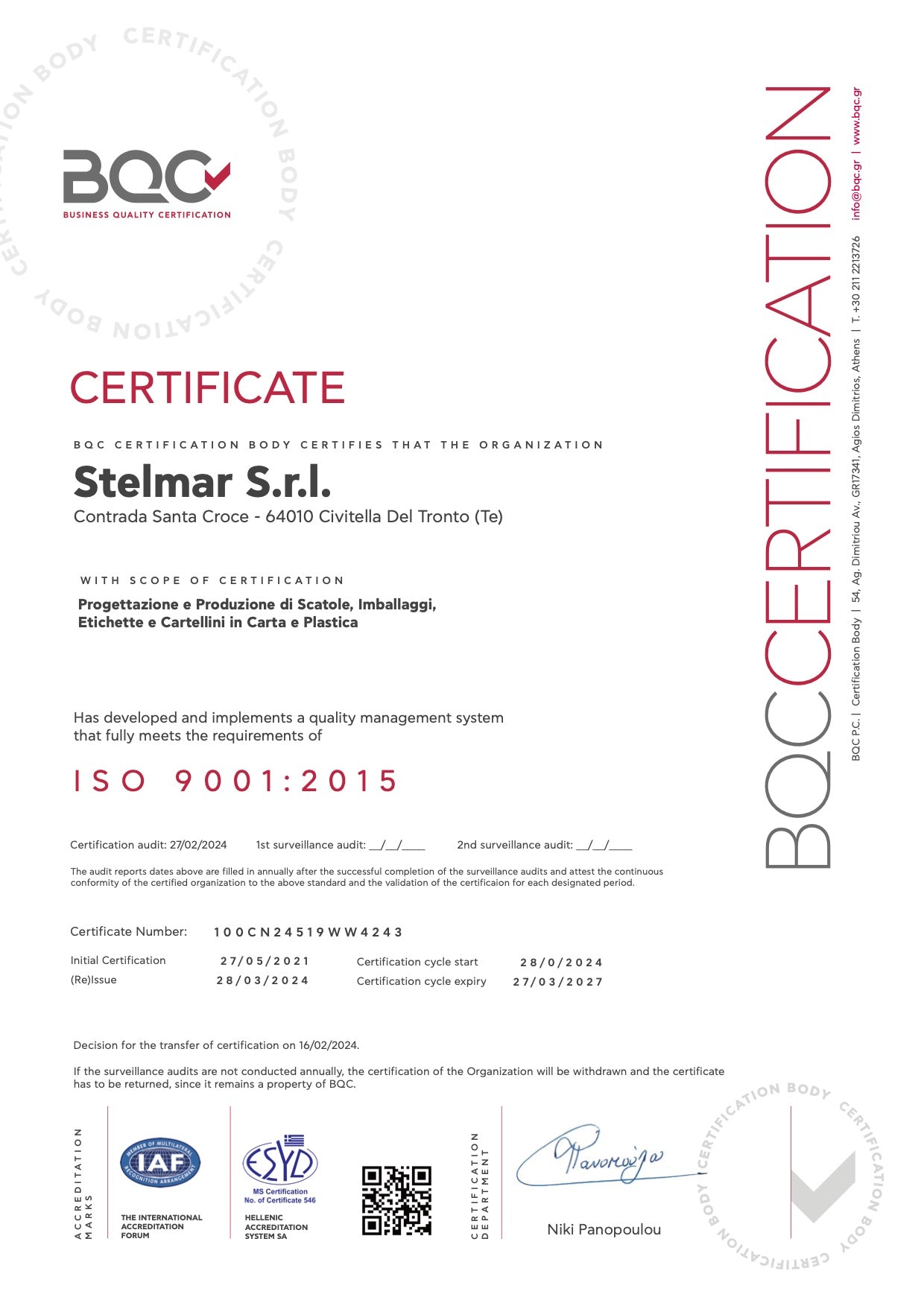
ISO 9001
The acronym ISO 9000 identifies a series of regulations and guidelines developed by the International Organization for Standardization (ISO) which define the requirements for the implementation of a quality management system within an organisation, in order to conduct business processes, improve effectiveness and efficiency in product creation and service provision, obtain and increase customer satisfaction.
Product certifications
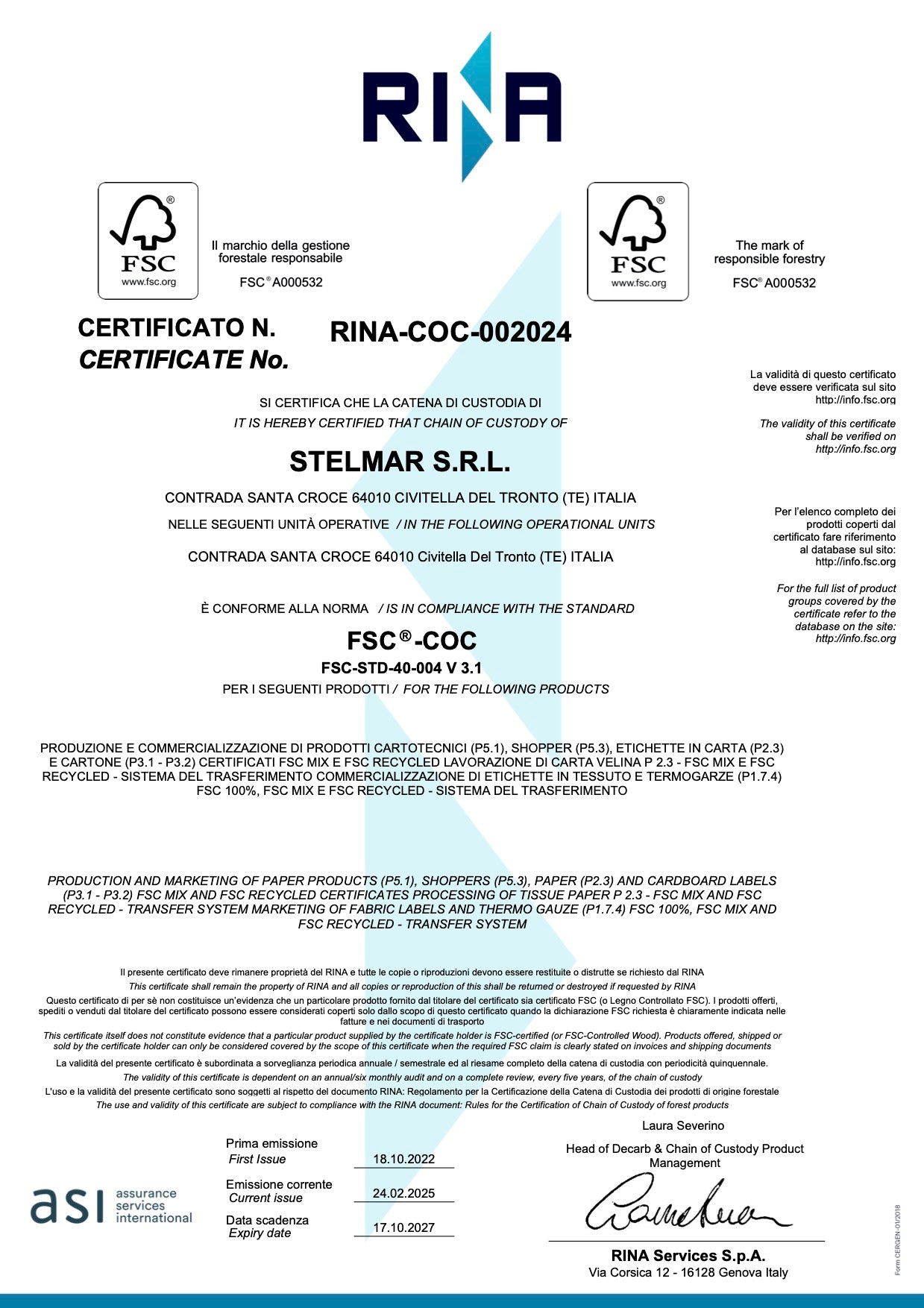
FSC® C181913
The Forest Stewardship Council is an international non-profit NGO that has created an internationally recognized forest certification system.
The certification aims at correct forest management and the traceability of derived products.
The FSC® C181913 logo guarantees that the product has been made with raw materials deriving from correctly managed forests according to the principles of the two main standards: forest management and chain of custody
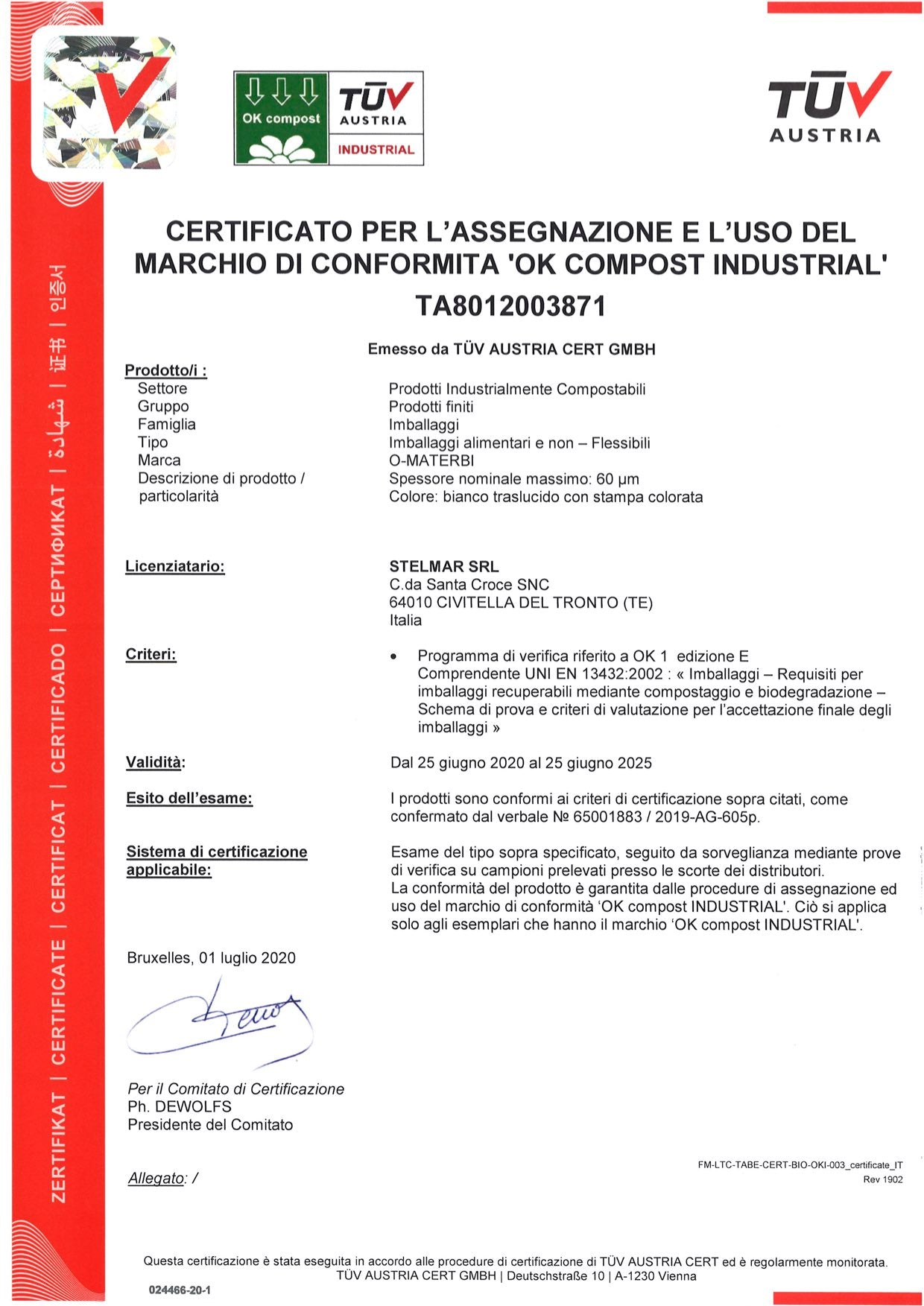
TÜV Austria
TÜV AUSTRIA , an independent certification, inspection, testing and training body, offers certification services at an international level in the fields of quality, energy, environment, safety and products. The OK compost brand and certification scheme - acquired in 2017 - guarantees that the product meets the stringent requirements of the UNI EN 13432 standard after having been subjected to accurate laboratory analyses.
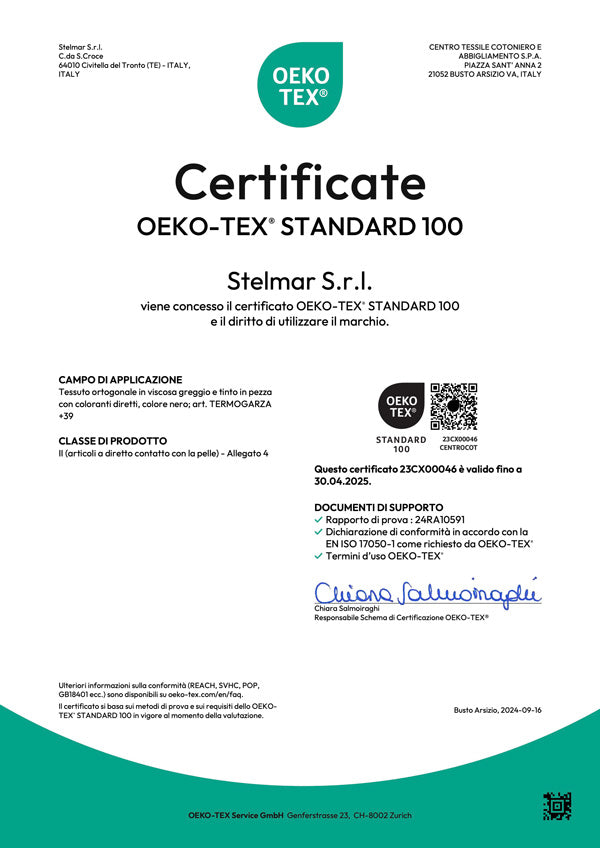
OEKO-TEX®
OEKO-TEX® STANDARD 100 is an independent testing and certification system for textile products for all types of production throughout the textile supply chain.
The OEKO-TEX® STANDARD 100 certification indicates that the product is certified as environmentally friendly and tested for harmful substances.
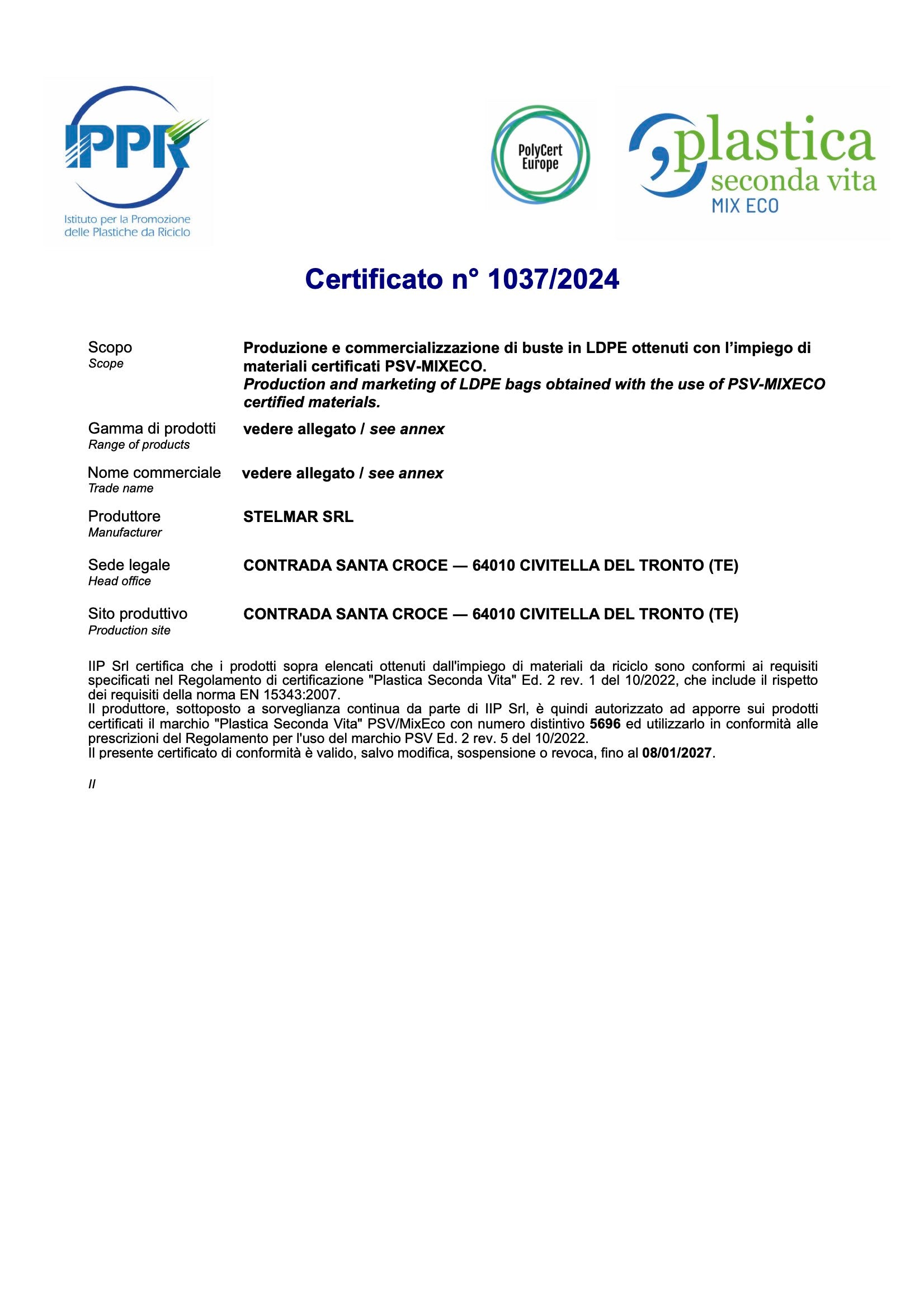
Plastic Second Life
The Plastic Second Life label has an important mission: to promote and communicate the recyclability of polymers and highlight the great potential of plastic materials to bring about a circular economy.
